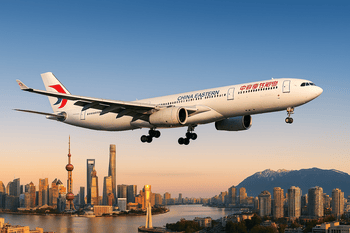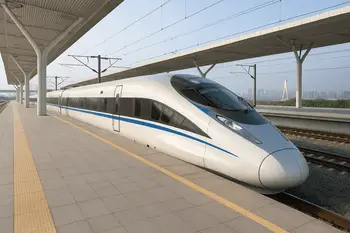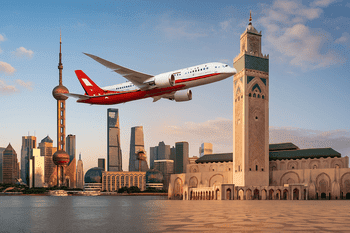
Living in China as a foreigner can be an exciting and enriching experience, but it also comes with its share of financial surprises.
While many anticipate costs like rent and groceries, there are hidden expenses that can catch you off guard.
This guide highlights these unexpected costs, provides practical tips for managing them, and includes resources to help you navigate the financial landscape in China.
Accommodation Costs Beyond Rent
Rent is often the largest expense for foreigners, but there are additional costs to consider:
| Expense | Details | Estimated Cost |
|---|---|---|
| Agent Fees | A one-time fee charged by rental agents, often equivalent to one month’s rent. | 50%-100% of one month’s rent |
| Maintenance Fees | Monthly fees for building upkeep, security, and amenities. | ¥100-¥500/month |
| Furnishing Costs | Unfurnished apartments may require purchasing furniture and appliances. | ¥5,000-¥20,000 (one-time) |
Tip: Negotiate with landlords to include maintenance fees or partial furnishing in the rental agreement.
Visa and Legal Expenses
Navigating visa requirements and legal processes can be costly:
| Expense | Details | Estimated Cost |
|---|---|---|
| Visa Application Fees | Fees vary by nationality and visa type (e.g., Z visa for work). | ¥400-¥1,200 |
| Renewal Costs | Renewing a visa or residence permit often involves additional fees. | ¥400-¥800 |
| Legal Assistance | Hiring a lawyer for visa or contract disputes can be expensive. | ¥1,000-¥5,000/hour |
Resource: Visit the State Council of China for official visa guidelines.
Transportation Costs
While public transportation is affordable, other transportation-related expenses can add up:
| Expense | Details | Estimated Cost |
|---|---|---|
| Taxi and Ride-Hailing | Frequent use of apps like Didi can become expensive. | ¥20-¥100 per ride |
| Car Ownership | High registration fees, insurance, and maintenance costs. | ¥10,000-¥20,000/year |
| Travel Expenses | Domestic travel during holidays often comes with inflated ticket prices. | ¥500-¥2,000 per trip |
Tip: Use public transportation whenever possible and book travel tickets well in advance to save money.
Healthcare and Insurance
Healthcare in China can be a mixed bag for foreigners:
| Expense | Details | Estimated Cost |
|---|---|---|
| Private Clinics | Preferred by many foreigners for better service, but costly. | ¥500-¥2,000 per visit |
| Health Insurance | Comprehensive plans are essential, especially for families. | ¥5,000-¥20,000/year |
| Emergency Costs | Unexpected treatments or specialist consultations may not be fully covered by insurance. | ¥1,000-¥10,000 |
Resource: Compare health insurance plans on platforms like Pacific Prime.
Education and Childcare
For families with children, education can be a significant expense:
| Expense | Details | Estimated Cost |
|---|---|---|
| International Schools | Tuition fees for international schools are often exorbitant. | ¥100,000-¥300,000/year |
| Extracurriculars | Music lessons, sports, and other activities can add up. | ¥500-¥2,000/month |
| Childcare Services | Hiring a nanny or enrolling in daycare can be costly. | ¥3,000-¥10,000/month |
Tip: Consider bilingual schools or local schools with international programs as more affordable alternatives.
Dining and Entertainment
Dining and entertainment costs can vary widely:
| Expense | Details | Estimated Cost |
|---|---|---|
| Western Restaurants | Eating at Western-style restaurants is significantly more expensive than local eateries. | ¥100-¥300 per meal |
| Alcohol | Imported alcohol is pricey, and even local brands can add up. | ¥50-¥200 per bottle |
| Entertainment | Activities like karaoke, clubbing, or attending events can quickly drain your wallet. | ¥200-¥1,000 per outing |
Tip: Explore local dining and entertainment options to save money while enjoying authentic experiences.
Utilities and Household Expenses
Utilities and household expenses can vary depending on the season and location:
| Expense | Details | Estimated Cost |
|---|---|---|
| Electricity and Water | Bills can spike during extreme weather due to heating or air conditioning. | ¥200-¥1,000/month |
| Internet and Phone | High-speed internet and international calling plans can be costly. | ¥100-¥300/month |
| Household Supplies | Cleaning products and toiletries may be more expensive than expected. | ¥200-¥500/month |
Tip: Use energy-efficient appliances and shop at wholesale markets for household supplies.
Miscellaneous Expenses
Other unexpected costs include:
| Expense | Details | Estimated Cost |
|---|---|---|
| Gifts and Social Obligations | Gifting is important in Chinese culture, especially during holidays or special occasions. | ¥100-¥1,000 per occasion |
| Language Classes | Learning Mandarin can be invaluable but comes at a price. | ¥100-¥300/hour |
| Banking Fees | International money transfers and currency exchange fees can add up. | ¥50-¥500 per transaction |
Resource: Use apps like Wise for low-cost international money transfers.
Tips for Managing Unexpected Expenses
- Create a Budget: Use apps like Mint or You Need a Budget (YNAB) to track your expenses.
- Research Thoroughly: Learn about local customs, costs, and regulations before moving.
- Negotiate Contracts: Always negotiate rental agreements and other contracts to minimize costs.
- Build an Emergency Fund: Set aside at least three months’ worth of living expenses for unforeseen costs.
- Leverage Expat Communities: Join local expat groups on platforms like Internations or WeChat for advice and recommendations.
Conclusion
Living in China as a foreigner is an adventure, but being prepared for unexpected expenses can make the experience smoother and more enjoyable.
By understanding these hidden costs, planning ahead, and utilizing available resources, you can focus on enjoying all that China has to offer without financial stress.



